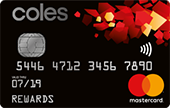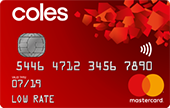These cards are linked with loyalty programs that reward you for shopping at the stores. The most popular examples are Coles/Flybuys and Woolworths/Everyday Rewards. Store credit cards have features typical of normal credit cards, such as interest rates and fees.
How store credit cards work
Store credit cards pre-date credit cards. They were originally cards that could only be used at the specific department store, petrol station or other retailers who issued them. Store cards worked as membership cards to loyalty schemes that rewarded customers’ loyalty to the shop or brand.
Today, store credit cards are branded and linked to a specific retailer but are issued and managed by a bank. Visa or MasterCard usually processes store credit card payments, so they can be used in all the same places as any other credit card. Store cards are still linked to rewards programs, in which cardholders can earn and redeem points for gift vouchers, products, special offers and discounts. Typically, points are earned on all credit card purchases, with extra points when you spend in the store or with other program partners. Some store credit cards feature cash back, which works as a discount when you spend at the retailer.
When comparing store cards, it is important to look beyond the loyalty program and consider the other features. These cards sometimes feature relatively high interest rates and/or annual fees, but they shouldn’t be so expensive that they negate your savings on shopping. Some feature promotions with a 0% purchase rate for an introductory period. These can be a good choice if you want to make a one-off large purchase at the store and repay within this period.
Who are store credit cards aimed at?
Store credit cards are a great choice for shoppers who spend often at a particular retailer, and the rewards scheme fits in with their normal spending.
- Woolworths shopper. For example, if you buy your weekly groceries at Woolworths, you could choose the Woolworths Everyday Money Card, earn points and save money on your shopping.
- Driver and BP regular. If you are a motorist and normally buy your petrol at BP filling stations, you may choose the Citibank BP MasterCard and earn cash back each time you use your credit card at BP.
These are just two examples – there are many other store credit cards suitable for different types of shopper.
Who are store credit cards not aimed at?
They are not such a good choice if you don’t want to be tied to a single retailer, you don’t use your credit card very often, or if you plan to use your credit card for a specific purpose, such as a balance transfer.
They are also a bad choice if you don’t pay your monthly balance in full, have an ongoing balance on your account or miss payments – the interest you pay on your debt can quickly wipe out any savings, and if you fail to keep your credit card account in good order you could lose the points you earn.
Store credit card benefits
Store credit cards usually provide a loyalty program, which allows you to earn rewards and discounts when you shop. Different rewards programs work in various ways, but generally, you collect points every time you use your credit card in the store or anywhere else, earning bonus points when you spend in-store or with the reward program’s partner companies. Points can then be redeemed for shopping vouchers to purchase rewards in the store. You can sometimes use the points for rewards from partner retailers or select goods and services from an online rewards catalogue.
Some store cards provide cash back on purchases in the form of a percentage of the transaction paid back, with the chance to earn bonus cash back when you shop in the store.
You may also enjoy other benefits from store credit cards, such as purchase protection, other types of insurance, and access to special offers and discounts only available to store cardholders.
In general, the main thing you get out of a store card, providing you choose the right one, is the chance to save money and enjoy rewards on your normal expenditure.
How to compare store credit cards
When shopping around for a store credit card, you need to consider all the features and find the one that is best for you. It is important to look at all the functions, rates and fees because you probably want to use your card for spending at other places apart from the store.
- The rewards program. One of the main things to look at is how the rewards scheme works. The store and any program partner companies must be places you already like to shop, the scheme should offer plenty of points for how you spend, and the available rewards should be products and services you want to use. Ideally, the rewards scheme should provide a way to save money on your normal expenditure.
- Points earning, redeeming, capping and expiry. Each loyalty program has its own rules on how points can be earned, including collecting bonus points and point redemption. There are usually restrictions on points, including capping, which limits how many points can be earned in a given period of time, and expiry, which limits how long points are valid.
- Points value. Each rewards scheme also has its own value for points – the true value of each point can be quite hard to identify. One way to do this is to calculate how many points are needed to earn a $100 shopping voucher or reward item worth $100. You can then calculate how much you would have to spend to collect that number of points, giving you an approximate point-to-dollar value.
- The standard ongoing purchase rate. If you do not pay your monthly balance in full, the unpaid amount starts attracting interest at the card’s standard purchase rate. It is important to compare this rate on different credit cards because paying interest regularly can quickly eat into the savings you make on the rewards scheme.
- Annual fee. This annual charge covers the general maintenance of your credit card and pays for extras such as the rewards program, insurance and other perks. The annual fee can tend to be relatively high with store credit cards – it should not be so high that it wipes out your shopping savings.
- Interest-free days. Many Australian store cards feature interest-free days, a period in which you can repay the balance for purchases and avoid paying any interest. The interest-free period is typically 44 to 55 days. You should note that interest-free days only apply to purchases. Other transactions, such as cash advances, attract interest from the date they are made.
- Cash transactions. These include cash advances such as ATM and bank branch withdrawals, buying foreign currency and paying for gambling costs. These types of transactions usually do not earn rewards points, do attract higher rates of interest than purchases and the interest is applied from the date of the transaction, so they are best avoided if you want to get the most out of a store card.
- Introductory offers. Some store credit cards feature promotions such as a 0% purchase rate for an introductory period, waiving the first year's annual fee, and bonus points when you first use your card. These deals can seem very attractive and can save money or provide a way of making purchases and repaying before the end of the promotion. Still, you should always examine how the package changes when the promotion ends to ensure you get ongoing value for money.
- Other features. Store credit cards may also feature extras such as purchase protection, travel insurance and other perks. Generally, if there are more extra features, the annual fee is likely to be higher, so finding a card with extras you can use is important.
How to maximise store credit card benefits
Like any other type of card offer, there is a way to use a store card to get the most out of it. Here’s what you should be doing.
- Spend often using your store credit card. To get the most out of a store credit card, you need to be spending often, collecting plenty of points and earning rewards, gift vouchers and discounts. However, this doesn’t mean spending just to earn points – instead, you should find ways of moving your normal everyday expenditure to your credit card. You should also look into how you can earn bonus points on items you normally purchase in the linked store or partnered retailers.
- Pay your monthly balance in full. While you continue spending on your store card, you should ensure that you do not overspend and aim to put aside enough money to pay off your monthly balance. If you always clear the balance within the interest-free days during your monthly statement cycle, you can avoid paying the interest, minimise the expense of using your store credit card and save money.
- Avoid cash transactions. This type of transaction includes cash withdrawals at ATMs and bank branches, buying foreign currency and gambling expenses. Generally, cash transactions attract a significantly higher rate of interest than purchases, they do not earn points, and the interest is applied straight away, so it quickly starts eating into your savings.
- Use your points. Ensure you use your points and get the rewards you deserve. You must learn all the restrictions on your points, such as capping and expiry, so you know how to collect the most points and claim your rewards before the points expire.
- Importantly, you should not spend on a store card for the sake of earning points. Instead, you should find a card that offers rewards for your normal shopping habits – if you can do this, you save money on your everyday spending.
FAQs
Is there an Amazon Australia credit card?
There is no Amazon credit card in Australia yet.
Does a store credit card work anywhere?
Yes. Although linked with a specific store and its rewards program, store credit cards can be used wherever credit cards are accepted.
Can a store credit card debt be transferred to a different credit card?
Yes. You can balance transfer from a store credit card to a balance transfer credit card and get the introductory interest rate.
Do store credit cards go on your credit report?
Yes. Since they are credit cards, your payment history will be reported to the credit bureaus.



